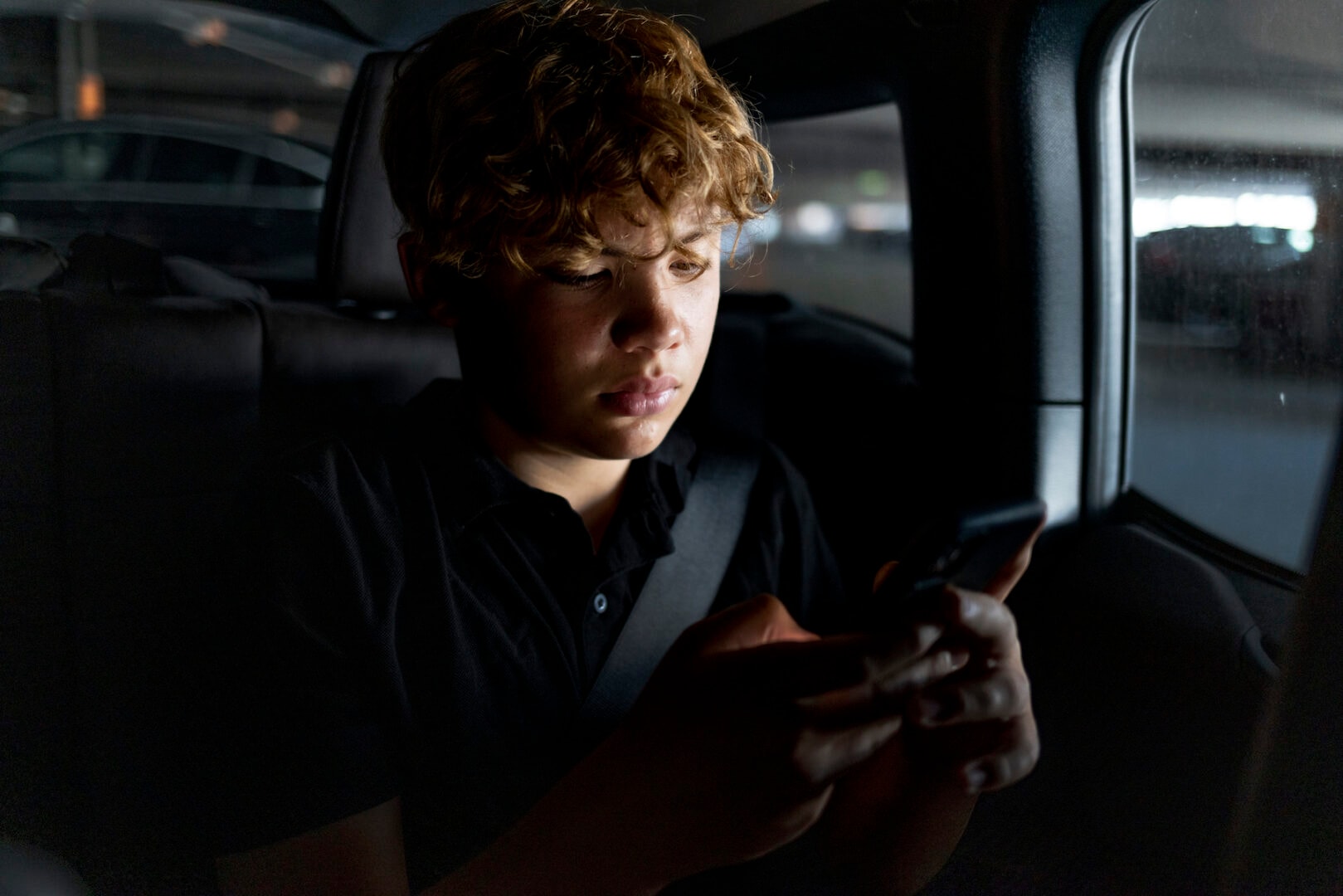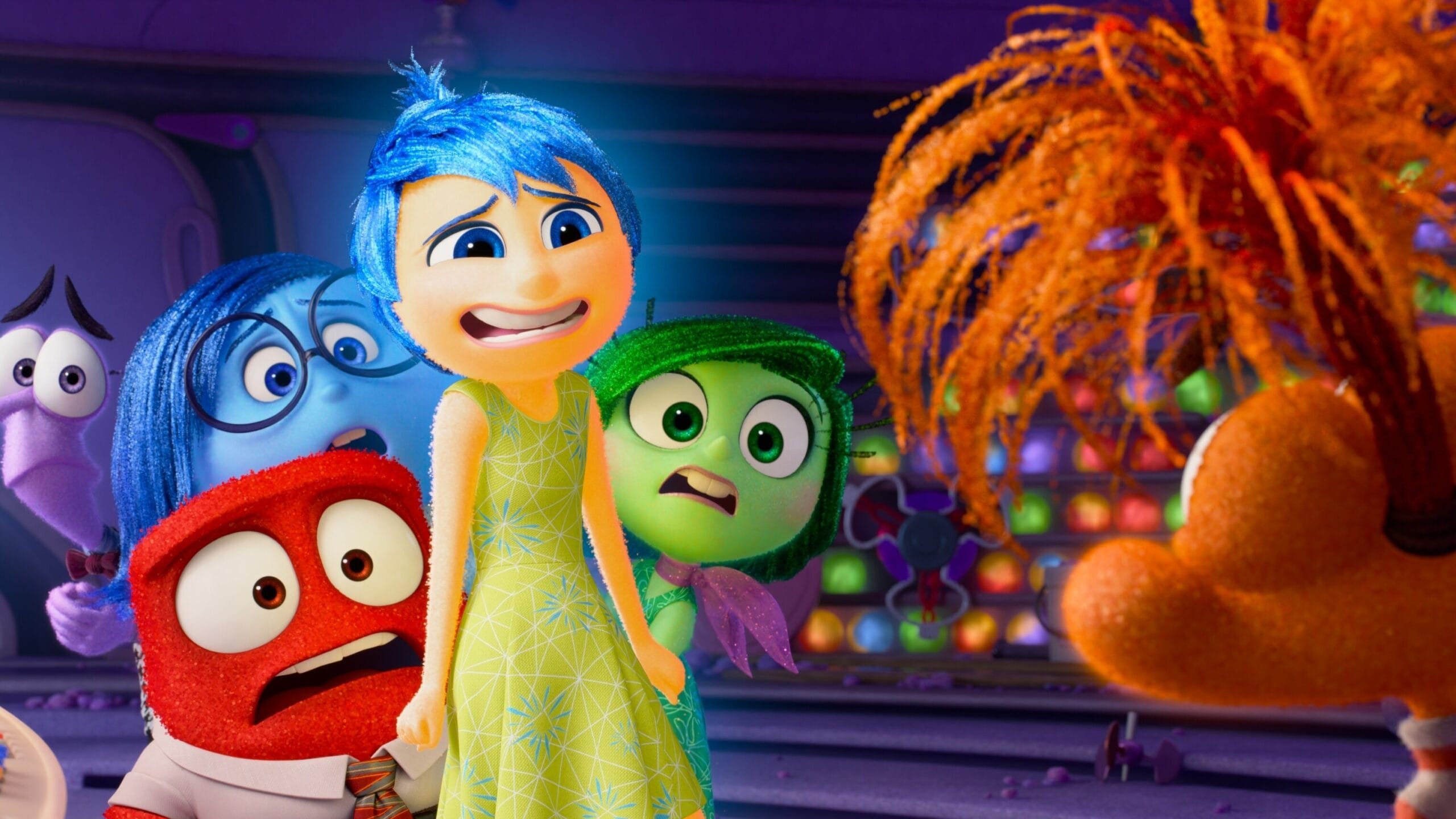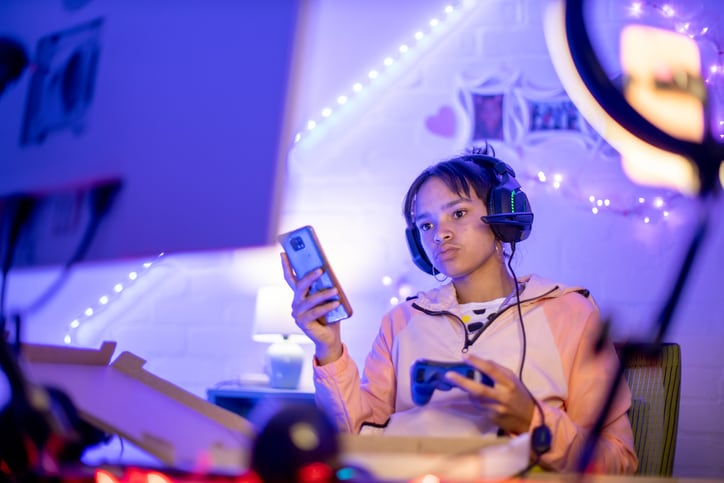The ongoing crisis in Ukraine has dominated conversations and social media feeds over the past few weeks, and kids and teens may be feeling the strain. Whether they’re old enough to “doomscroll” through the news themselves or they’ve simply heard adults or friends talking about what’s happening, they may be experiencing stress, anxiety and fear.
As a parent or caregiver, having difficult conversations and educating kids about world events is a part of the job. But how and when do you talk to kids about a situation that is overwhelming and emotional even for grown-ups?
For guidance, we asked three experts in child psychology. Here, they share advice for helping kids of all ages feel informed, supported and secure as we navigate this uncertain time.
Let kids take the lead
In many cases, the age of your child will determine if and how you discuss the events in Ukraine. If your child is in preschool or early elementary school and doesn’t have loved ones close to the situation, it’s likely not necessary to bring it up, says Dr. Kyle Pruett, an education advisory board member at The Goddard School and a clinical professor of child psychiatry at Yale School of Medicine.
“When gauging what or how to share information about Ukraine, parents first must ask: ‘How close are we to the situation?’ If they are remote, physically and emotionally, they probably won’t need to share much, if any, information because it’s not even on the kid’s radar,” he explains.
“When gauging what or how to share information about Ukraine, parents first must ask: ‘How close are we to the situation?’ If they are remote, physically and emotionally, they probably won’t need to share much, if any, information.”
— DR. KYLE PRUETT, CLINICAL PROFESSOR OF CHILD PSYCHIATRY
If kids do have close ties to Russia or Ukraine, such as loved ones who live there, “those are the kids that need more encouragement because they will be aware their parents are stressed and concerned,” Dr. Pruett says. “If parents have reason to think their child is worried about it, they should ask them if they have questions about what they’ve heard. Start with questions, not answers. ‘What have you heard or seen? What are you wondering about?'”
Older children, such as those in the upper elementary and middle school grades, may be ready to start learning more about current events. And tweens and teens are likely hearing about Ukraine from teachers, other adults or even peers on social media. With these kids, it’s important to discuss and help them make sense of what they are seeing and hearing.
“A great way to start can be simply asking what they know about the current situation,” says Dr. Madeleine Vieira, a clinical child psychologist and the author of the upcoming “I’m Afraid” book series on childhood anxiety disorders. “This gives you the opportunity to address anything they already know and then transition into what you want to teach them.”
“A great way to start can be simply asking what they know about the current situation. This gives you the opportunity to address anything they already know and then transition into what you want to teach them.”
— DR. MADELEINE VIERA, CLINICAL CHILD PSYCHOLOGIST
Don’t offer an information overload
The news and predictions about the crisis in Ukraine can be stressful and overwhelming for kids of all ages. While it’s helpful for a parent to break down and clarify information on tough topics, it’s important not to give kids more than they can handle.
“Helping your child cope with a violent world seems daunting, especially as traditional media and social media amplify and dramatize current events,” says Dr. Toya Roberson-Moore, a child and adolescent psychologist with Pathlight Mood & Anxiety Center. “That’s why it is so important to limit children’s exposure to media and have conversations with them directly, to help them cope with their fears and put things into perspective.”
“… it is so important to limit children’s exposure to media and have conversations with them directly, to help them cope with their fears and put things into perspective.”
— DR. TOYA ROBERSON-MOORE, CHILD AND ADOLESCENT PSYCHOLOGIST
Dr. Vieira suggests discussing the topic broadly by sharing only basic and age-appropriate details of what’s happening first. Then, you can clarify or expand, based on your child’s responses and questions.
“If they understand the conversation enough to formulate a further question, they are probably prepared to hear the answer,” she says. “Often your intuition and knowledge of your child will help you know what is appropriate to share with them.”
Watch out for signs of stress and anxiety
Kids don’t always have the ability to articulate it when they’re feeling anxious or stressed. If you discuss important topics like Ukraine together, the experts say to watch out for signs that your child may need some support. These include:
- Lack of concentration.
- Loss of appetite.
- Difficulty sleeping.
- Getting angry or irritable quickly.
- Being fidgety.
It’s important to remember that signs of anxiety may not always be specific or easy to pinpoint, Dr. Pruett says. “[It’s] more so a collection of things that make a parent say, ‘My kid isn’t acting the way they usually are,'” he adds. “Even if there are changes, parents should be certain it’s because of news about Ukraine — for example, the parent knows they saw something on TV — before questioning the child.”
If you aren’t sure what’s fueling your child’s behavior changes, you can ask in an open-ended way, Dr. Vieira says. “A great way to approach the topic is to say, ‘I noticed you doing ‘XYZ’ differently today. You don’t normally seem to struggle with that. Are you perhaps feeling a little nervous or scared? Did you hear or see something that is making you feel funny?’”
Talk through their fears
As a parent, it can feel overwhelming to try to reassure your kids that everything is OK when you aren’t really sure what’s going to happen either. Dr. Vieira says you don’t have to have all the answers. You just need to be there to listen and reassure your children.
“Listen carefully without interrupting any parts where they didn’t fully understand or received wrong information,” she advises. “Sometimes simply giving the correct information can calm a child’s fear. If the information they have is correct, remind them that they are safe. Let them know that you will protect them. While there are scary things happening around us, right now they are safe and sound with you.”
Kids might have questions you don’t know how to answer. If that’s the case, Dr. Roberson-Moore says to be honest about it, seek answers from quality sources and help your kids develop their own opinions and critical thinking skills along the way.
“It can be difficult to help your child make sense of a conflict that you yourself may not fully understand,” she explains. “You may feel you are called to be an all-knowing, instant expert, and that’s not the case. As parents, it’s crucial that we lean in to accurate, inclusive resources crafted by people with lived experience and the necessary historical and present-day context.”
“As parents, it’s crucial that we lean in to accurate, inclusive resources crafted by people with lived experience and the necessary historical and present-day context.”
— DR. TOYA ROBERSON-MOORE, CHILD AND ADOLESCENT PSYCHOLOGIST
Combat misinformation
Younger kids who are only getting their information from you or other trusted adults are less likely to be impacted by misinformation, but older kids who use social media may need help verifying and processing the things they’re seeing.
“Simply having conversations about what is going on will help them battle misinformation,” Dr. Vieira says. But you can also be intentional about battling misinformation by:
- Talking about what media outlets are reliable.
- Explaining how quickly things shared on social media can be taken out of context.
- Showing examples of misinformation.
“Recently a photo was circulating online of a young girl confronting a soldier with a caption that stated that the picture was taken in Ukraine,” Dr. Vieira offers. “In reality, the photo was taken in 2012 in the state of Palestine. Though the misinformation caused no direct harm, it still was misinformation. This would be a good example to share with your children.”
Keep the conversation going
The situation in Ukraine is ongoing, and as the past several years have taught us, there will always be new and significant world events that parents must help kids navigate. For that reason, Dr. Vieira says, it’s important to let kids know that you are always holding a safe space to have “calm, easy and judgment-free” discussions.
“Remember as you close the conversation to make sure that your child knows that the line of communication between the two of you is always open,” Dr. Vieira says. “You are always there if they have more questions or start to feel anxious again.”






